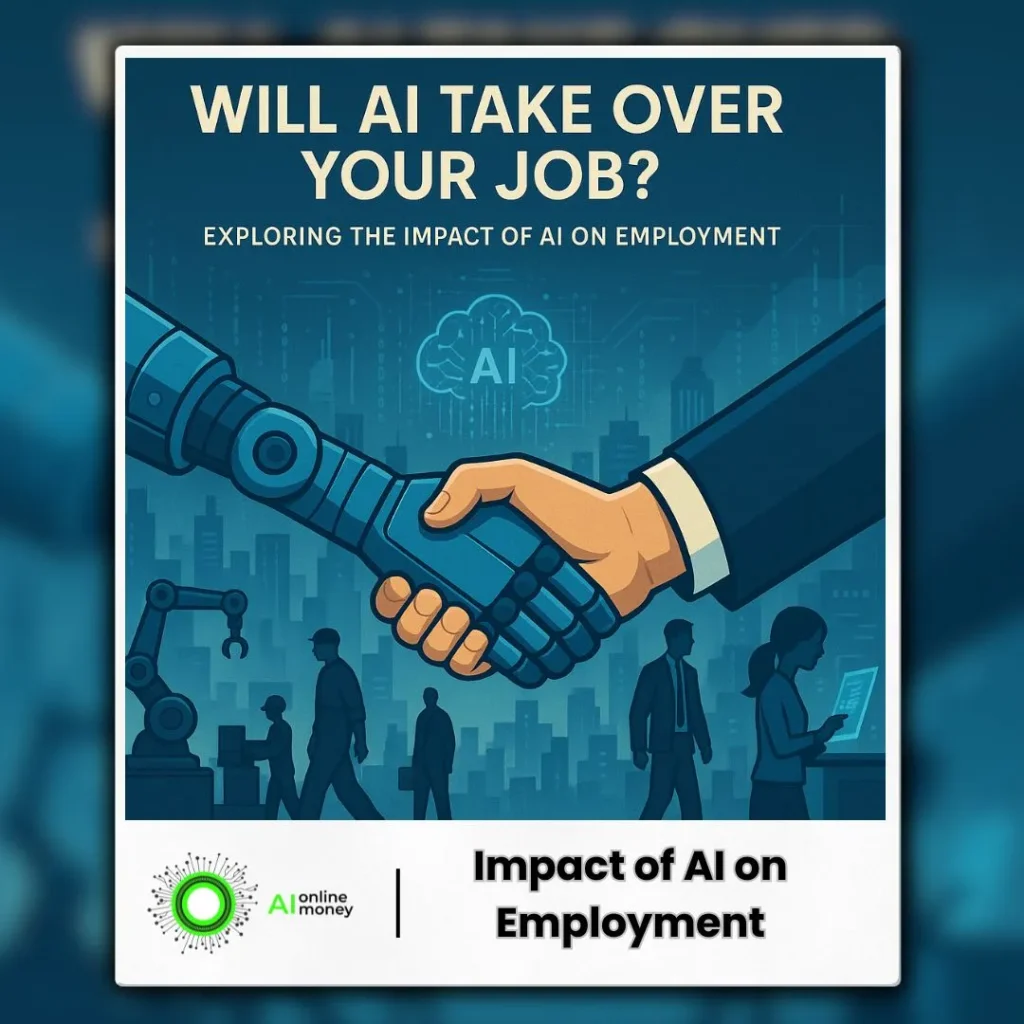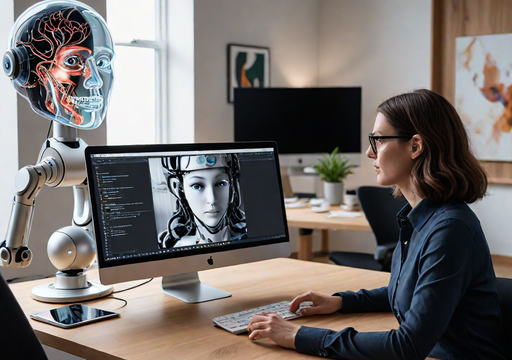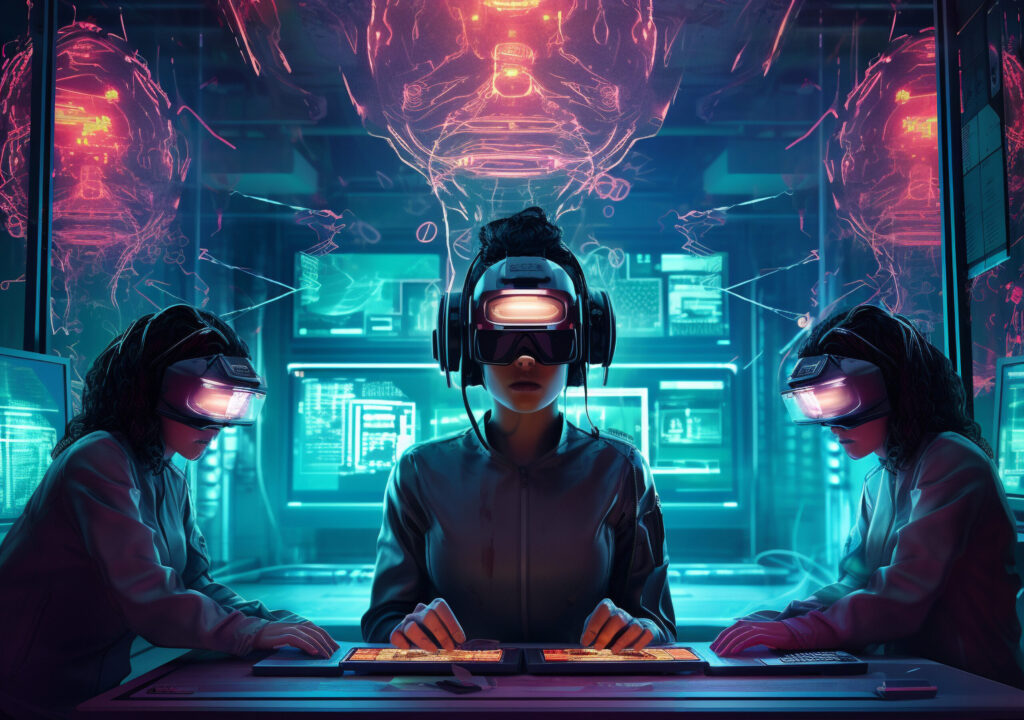Table of Contents
Introduction
Artificial intelligence is quickly changing the world around us, including how we work. From self-checkout machines to smart chatbots, AI is already part of many jobs we see every day. But with this fast growth, many people are asking an important question: How will AI affect jobs in the future?
We all need to consider AI’s impact on employment. While AI can help make work faster and easier, it might also replace some jobs, especially those that involve simple or repetitive tasks. At the same time, it can create new job opportunities that did not exist before.
In this blog, we explore the different ways AI is changing the job world. We look at the good and the bad sides of this change, and what it means for workers, students, and businesses. By understanding the impact of AI on employment, we can better prepare for the future and make smart choices in our careers.
The Rise of AI in the Workplace
Artificial intelligence (AI)is the ability of computer systems to carry out tasks that usually need human intelligence, like learning, solving problems, and making decisions. Today, AI is being used in many industries to improve work faster and more accurately.
In factories, smart robots help build products. In customer service, chatbots answer questions at any time of the day. In hospitals, AI helps doctors find problems more quickly. Banks use it to spot fraud and manage money.
While this sounds exciting, there’s also a downside. The negative impact of artificial intelligence on employment is more visible in jobs that involve repetitive or routine tasks, which are now being automated.
The overall impact of AI on employment is big and growing. As AI continues to improve, the way it works is changing. creating new jobs in some areas and replacing others. Everyone needs to understand these changes and prepare for the future.
Positive Impact of Artificial Intelligence on Employment
Some people worry about losing jobs to machines, but AI also opens many new doors in the working world. One big positive impact of artificial intelligence on employment is that it takes over boring and repetitive tasks. This gives people more time to focus on creative, meaningful, and decision-making work. As a result, the workplace becomes more efficient and employees can be more productive.
AI is also creating new types of jobs that did not exist before. Roles like data analysts, machine learning engineers, AI trainers, and robot technicians are now in high demand. These jobs require different skills and often better pay and career growth.
Another positive impact of artificial intelligence on employment is the chance to reskill or learn something new. Many companies are now training their workers to use AI tools, which helps people stay relevant in the job market.
The impact of AI on employment is not just about replacing old jobs, it is also about transforming how we work. With the right support and training, workers can move into new roles and grow along with technology. That is why understanding the impact of AI on employment is so important for building a strong future workplace.
Negative Impact of Artificial Intelligence on Employment
The AI continues to grow, it brings not just benefits but also serious challenges to workers around the world. One major negative impact of artificial intelligence on employment is job displacement. Many routine or repetitive jobs like data entry, cashiers, or factory work are being replaced by machines and software that can do the same tasks faster and without breaks.
This shift creates a growing gap between high-skilled and low-skilled workers.While people with tech skills find new opportunities, others may struggle to keep up. Artificial intelligence’s negative impact on employment is leading to more inequality in the job market, especially for those who do not have access to quality education and training.
There is also the emotional toll to consider. Even if your job isn’t replaced today, the fear that it might be in the future can be stressful. Constant worry about job security can lead to anxiety, low motivation, and poor mental health, another serious but often hidden negative impact of artificial intelligence on employment.
The overall impact of AI on employment is complex. Some jobs disappear, some change, and new ones are born. To handle this wave of change, we need to look at both the good and the bad, and sure workers get the support they need to succeed in the age of AI.

How will AI affect Different Job Sectors?
AI is changing the way we work across many industries. From hospitals to classrooms to banks, the impact of AI on employment is clear and growing every day.
- Healthcare
In healthcare, AI is helping doctors and nurses by taking care of routine tasks like scheduling, data entry, and patient monitoring. This support lets medical staff focus more on patient care. It’s a great example of the positive impact of artificial intelligence on employment, where technology works alongside people, not against them. - Education
In education, AI acts like a helpful assistant. It can grade papers, create personalized learning paths, and even answer student questions through chatbots. This gives teachers more time to do what they do best: teach and connect with their students. - Finance
Finance is also seeing big changes. AI is now handling tasks like automated trading, fraud detection, and customer service chats. While this boosts speed and accuracy, it also shows the negative impact of artificial intelligence on employment, especially for repetitive jobs.
The impact of AI on employment isn’t the same everywhere, but one thing is for sure: AI is here to stay. So understanding how AI will affect jobs in the future can help workers prepare and grow with these changes.
Preparing for the Future: Adapting with Confidence.
The future of Jobs does not have to be scary; it can be full of new chances if we are prepared. As the impact of artificial intelligence on employment keeps growing, everyone needs to learn, adapt, and stay ready for change. One great way to prepare is by learning new skills. This could be tech skills, or improving
Things like teamwork and problem-solving. These skills help people move into jobs where they work with AI instead of being replaced by it. This shows a positive impact of artificial intelligence on employment, where people grow and find better job options.
We also have to remember the negative impact of artificial intelligence on employment. Some jobs will go away or change a lot. But if we stay open to learning and get the right support, we can shift into new careers.
Overall, the impact of artificial intelligence on employment is a big change, but if we stay ready, we can make the most of it.
Conclusion
The impact of AI on employment is already being felt across many industries and it will only grow in the coming years. While AI brings many benefits, we must also be aware of the negative impact of artificial intelligence on employment, especially for workers in routine and low-skilled jobs.
At the same time, AI is creating new job opportunities and pushing people to learn and grow. With the right education, training, and support from governments and businesses, workers can adapt and thrive.
The future of work will look different, but it doesn’t have to be uncertain or scary. By understanding the impact of AI on employment and staying open to change, we can prepare for a better, smarter workforce. The impact of AI on employment is not just about technology, it’s about how we, as people, choose to respond and grow with it.



